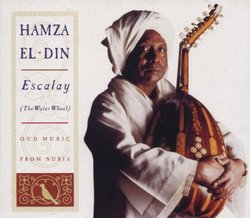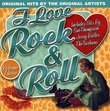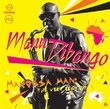| All Artists: Hamza El Din Title: Escalay: Water Wheel - Oud Music of Nubia Members Wishing: 1 Total Copies: 0 Label: Nonesuch Release Date: 1/13/1998 Genres: Folk, International Music, Jazz, Pop Styles: Traditional Folk, Africa, Middle East, Arabic Number of Discs: 1 SwapaCD Credits: 1 UPCs: 075597204124, 755972041246, 075597204162 |
Search - Hamza El Din :: Escalay: Water Wheel - Oud Music of Nubia
 | Hamza El Din Escalay: Water Wheel - Oud Music of Nubia Genres: Folk, International Music, Jazz, Pop
One of the first world-music releases to reach Western ears (originally issued in 1968), this album rightfully established Hamza El Din as one of the leading instrumentalists on the lutelike oud, which he taught to guitari... more » |
Larger Image |
CD DetailsSynopsis
Amazon.com One of the first world-music releases to reach Western ears (originally issued in 1968), this album rightfully established Hamza El Din as one of the leading instrumentalists on the lutelike oud, which he taught to guitarist Sandy Bull and others. The three tracks that comprise this disc, all lengthy improvisations, showcase El Din's remarkably fluid technique and his Nubian roots, whether on the traditional "Song with Tar" or "I Remember," which was originally performed by Egypt's greatest diva, Om Kalthoum. Perhaps the best example of El Din's instrumental meditations, however, is the title track, which is his own composition. Its lines ripple and sway, then stop to ponder and work around a phrase before moving on--a style unique at the time, but which influenced a generation of oud players that followed. A masterpiece. --Chris Nickson Similar CDs
|
CD ReviewsThe Soul of Nubia Zekeriyah | Chicago, IL | 10/15/2002 (5 out of 5 stars) "Hamza el Din is one of the world's greatest musicians. Those familar with music from Africa and the Middle East may have heard similar sounds, but nothing quite approaches the traditional music of Nubia. The Nubians, who played a vital role in Egyptian history from pre-dynastic times into the Christian era, have long inhabited the lands in southern Egypt/northern Sudan for as long as anyone can remember, and cling fiercely to their proud history. Hamza el-Din embodies all that is great and ejoyable about Nubian music. Its lively and exotic, and yet at the same time easily approached. One thing to note here, the oud (on which Hamza is self-taught btw) is not a traditional Nubian instrument. It is an Arab instrument, but Hamza plays it in a uniquely Nubian way. If you appreciate the music of Africa and/or the Middle East, then check this CD out. Its well worth the buy, and is likely unlike anything you've ever heard." Tone Master Pharoah S. Wail | Inner Space | 04/30/2000 (5 out of 5 stars) "I have several cd's with oud's (a Middle Eastern lute) and none of them have the rich and gorgeous tone that this cd has. I suspect this rich and beautifully resonant tone is partly due to Hamza's amazing musical skills and partly due to a great recording engineer who just really knew how to capture Hamza's tone.THE WATER WHEEL is my favorite track on this cd although I don't say that as a way to slight the other two tracks. I'm not going to give anything away here but don't play this cd while doing something else. Really focus on it and listen to it because when Hamza starts singing for the very first time it is incredible. It's one of my favorite vocal moments in all of recorded music. I think most people think of him mainly as a composer and an oud player but his voice is beyond description.The cd ends with a rhythmically meditative song played on the Tar which is (straight from the liner notes) "the large single-headed hoop drums, much like large tambourines, which are indigenous to Nubia". Don't let that discourage you if you don't like tambourines, I think they make that comparison about the construction of the instruments because the tar doesn't really sound like a tambourine.All in all, an incredible cd and let me just say that this is "Real Indigenous Music". There are no drum machines or programmed samples on this. This is true musical expression that represents the lands and peoples of Hamza's home and interests (Nubian and Arabic), it's not techno dance music that just happens to be in a "foreign language"." I just love it Ed Gibbon www.congocookbook.com | 08/10/2001 (5 out of 5 stars) ""Escalay: The Water Wheel" was recorded over thirty years ago after Hamza El Din attracted the attention of musicians like Joan Baez and Mickey Hart. There is much more to the story than that. Hamza El Din was born in "Nubia" (Sudan) where the oud, or "Arab lute" is as foreign as it is in America. He decided to become a musician when he was a young man, studying engineering in Cairo. He is the first person to play traditional Nubian music on the oud. The results are stunning. I don't know anything about traditional Nubian music, nor do I know much about the oud, having only a few CDs of Arabic oud music in my collection; I just know I really like this recording. It has three songs: The title track "The Water Wheel" is a musical description of oxen turning a water wheel to irrigate the fields; the combination of Hamza El Din's playing and singing are enchanting. The second selection is a song by Egyptian composer Mohammed Abdul Wahab (or Mohamed Abdel Wahab, see other CDs of his music). The last selection is a tradtional Nubian song featuring the Tar, or Nubian drum. Also worth noting are the excellent notes by Elizabeth Warnock Fernea, author of several books about the Middle East; "Street in Marrakech" and "Guests of the Sheik", for example."
|

 Track Listings (3) - Disc #1
Track Listings (3) - Disc #1


